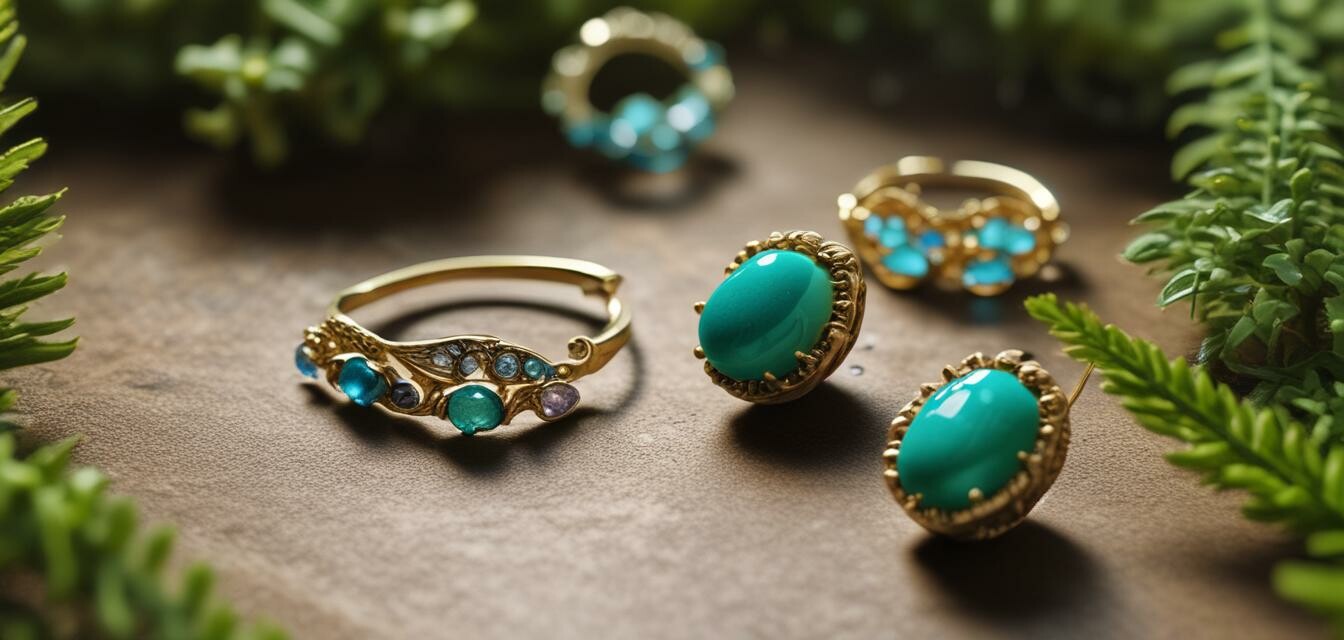
Ethical Jewelry's Role in Promoting Local Artisans
Key Takeaways
- Ethical jewelry supports local artisans and communities.
- Sustainable practices help preserve cultural traditions.
- Purchasing ethical jewelry can contribute to environmental sustainability.
- Understanding certifications can help identify truly ethical products.
- Engaging with local artisan communities fosters economic growth.
In recent years, the spotlight on sustainability has brought ethical jewelry to the forefront. Such jewelry not only boasts aesthetic appeal but also plays a crucial role in supporting and empowering local artisans. This article will explore how ethical practices are shaping the future of the gemstone jewelry industry and how these actions contribute positively to communities.
The impact of ethical jewelry on local artisans
Ethical jewelry helps local artisans showcase their skills, preserving unique cultural crafts and traditions. By focusing on fair trade and sustainable sourcing, these jewelry pieces enable artisans to earn a fair wage while promoting their heritage. Here are some significant impacts:
- Economic empowerment: Fair wages allow artisans to support their families and communities.
- Skill development: Ethical jewelry brands often provide training, helping artisans improve their crafting techniques.
- Cultural preservation: The sale of ethically crafted jewelry helps maintain and promote local culture and art.
Understanding sustainability practices in ethical jewelry
With an increasing demand for transparency, many ethical brands follow specific sustainability practices to ensure their products are eco-friendly. This not only attracts environmentally conscious consumers, but it also creates a ripple effect impacting the entire jewelry supply chain.
Key sustainability practices include:
| Sustainability Practice | Description |
|---|---|
| Responsible Sourcing | Utilizing materials that are ethically mined or recycled to minimize environmental impact. |
| Eco-friendly Packaging | Using biodegradable or recycled materials for packaging to reduce waste. |
| Supporting Local Communities | Collaborating with local artisans to create jobs and boost the local economy. |
Certifications to look for
To ensure you're purchasing authentic ethical jewelry, look for certifications that indicate sustainable practices. These certifications provide assurance that your jewelry is ethically produced:
- Fair Trade Certification: Ensures artisans receive fair compensation and work in safe conditions.
- Responsible Jewelry Council: Aims to enhance consumer confidence through responsible practices.
- Global Organic Textile Standard (GOTS): Focused on organic textiles, but also covers ethical jewelry practices.
Engaging with local artisan communities
Supporting ethical jewelry brands is more than just buying products; it involves engaging with the artisans and the communities they represent. Here’s how to engage:
- Attend local artisan fairs to meet jewelers and see their crafts directly.
- Follow brands on social media to keep up with their efforts and initiatives.
- Join workshops to learn more about the crafting processes and techniques.
- Share your purchases online to highlight artisans and encourage others to buy ethically.
Conclusion
Purchasing ethical jewelry goes beyond adornment; it's an opportunity to contribute positively to local artisans and empower communities. By choosing pieces that emphasize sustainability, you not only support individual artisans but also promote cultural heritage and environmental responsibility. Your purchase matters—choose wisely and thoughtfully!
Tips for buying ethical jewelry
- Research brands to ensure they practice what they preach.
- Explore our buying guides for insights on what to look for.
- Look for authentic stories behind each piece to understand its journey.
- Be mindful of the materials used in making the jewelry.
- Connect with others who prioritize ethical purchasing to share experiences.
Pros
- Supports local economies and artisans.
- Promotes cultural heritage.
- Encourages sustainable practices and responsible consumption.
Cons
- Often more expensive than mass-produced alternatives.
- Limited availability in some markets.
- Need for ongoing consumer education about ethical practices.
Learn more about ethical jewelry
For more insights into ethical practices and local artisans, explore our articles: